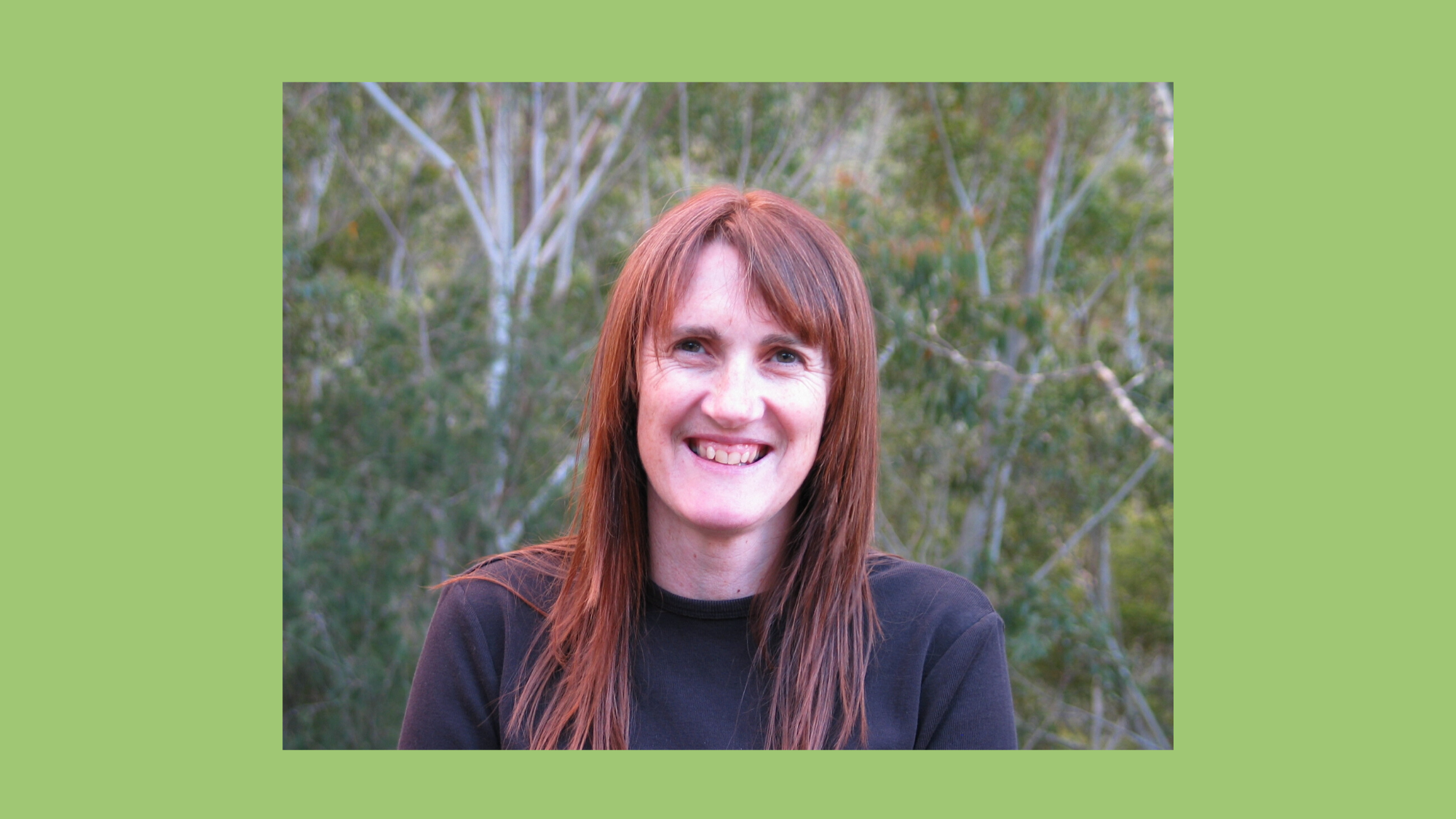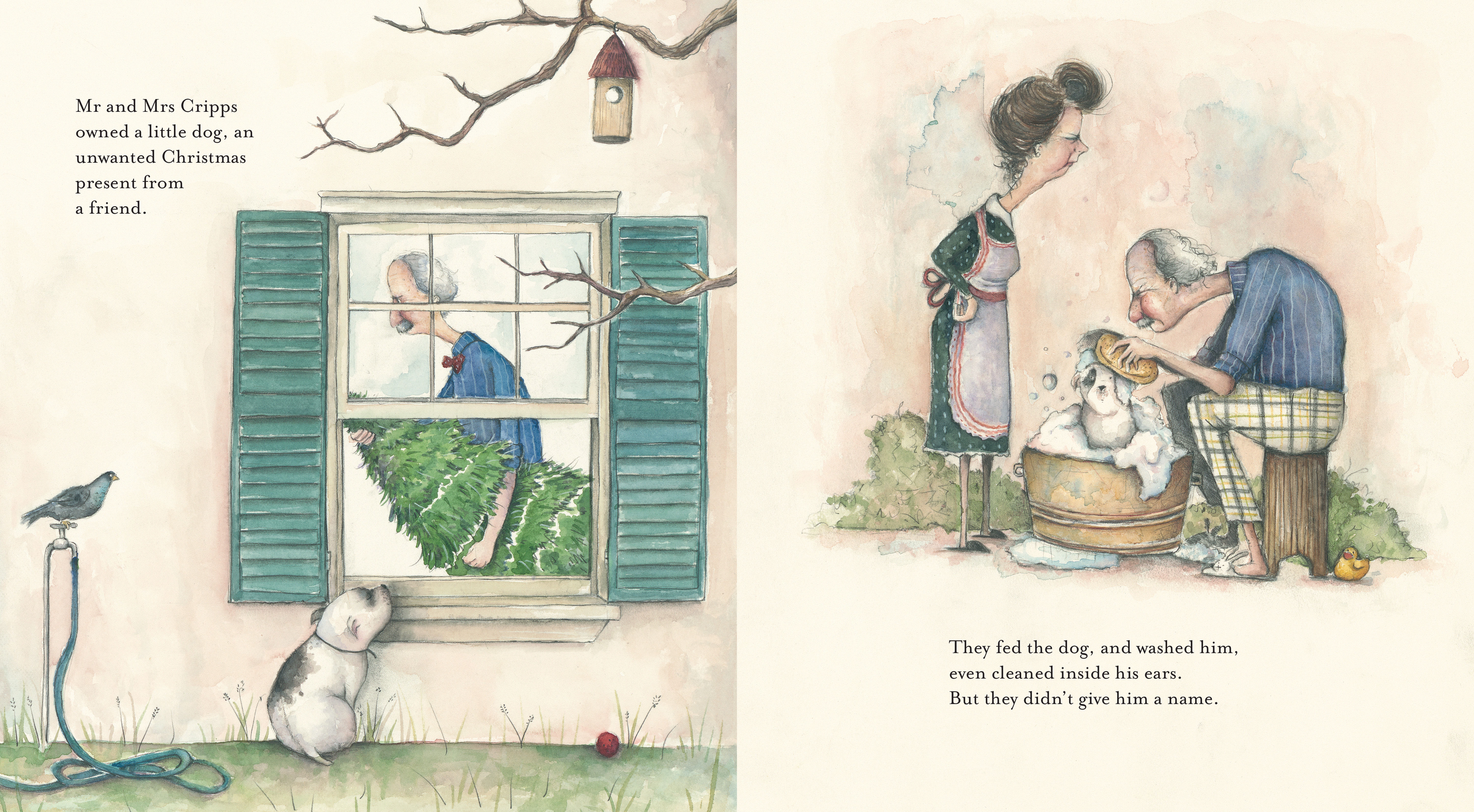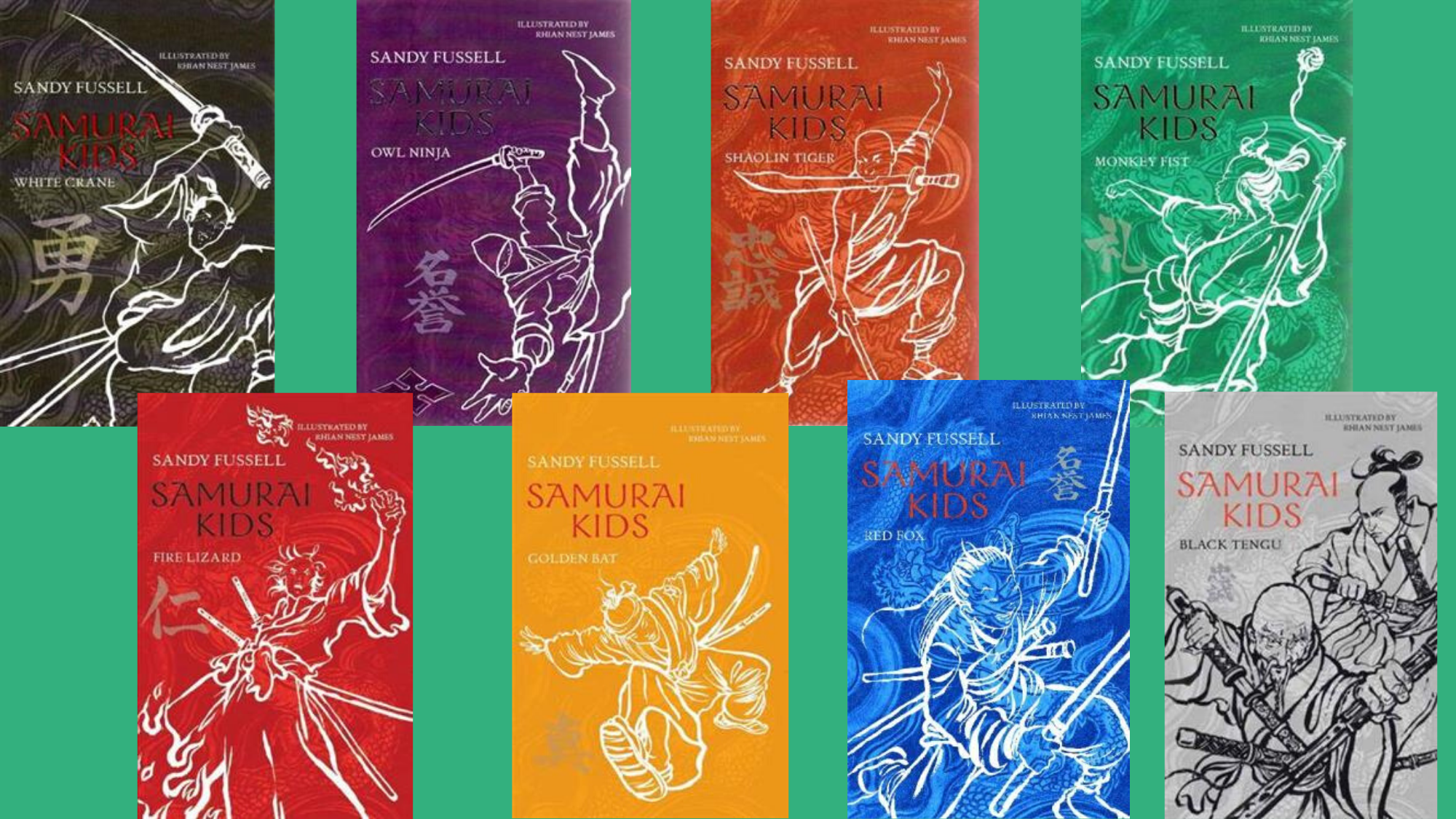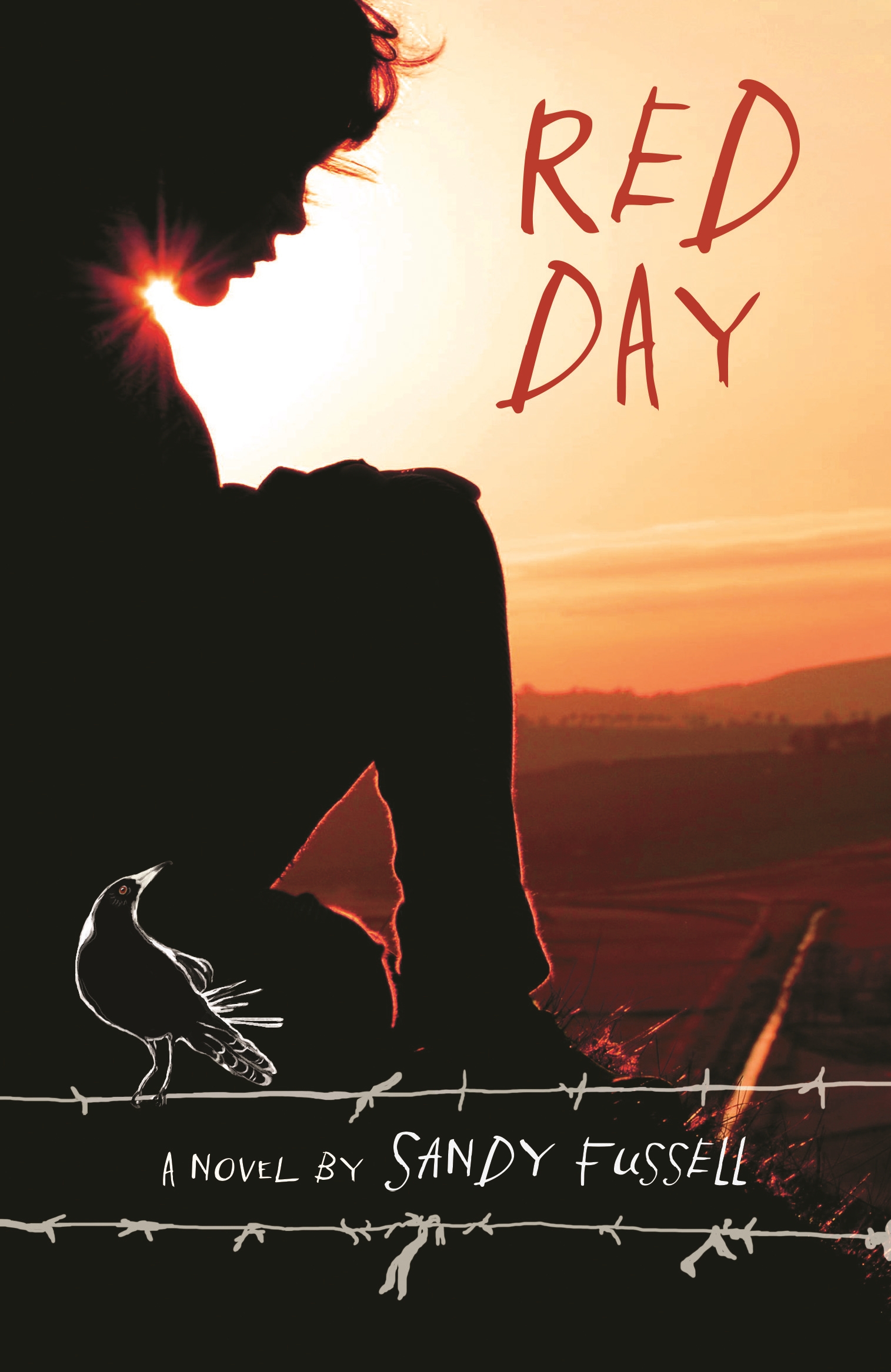Australian author Sandy Fussell has written a wide range of historical junior fiction and even a picture book that has impacted on the lives of her readers. It is part of the reason she keeps writing. Michael Earp writes about her ‘Cinderella’ career and her new book Red Day.

Sandy Fussell calls herself a Cinderella author. She went from a word enthusiast with a background in industrial mathematics and computer programming to publishing three titles with Walker Books Australia in her first year as an author. Samurai Kids went on to be an eight-book series that won multiple awards in Australia and internationally, and Polar Boy was shortlisted for the Children’s Book Council of Australia awards. Superbly balancing historical elements, adventure and the heart of a child’s experience, her middle grade novels are a joy to read. Even her picture book, Sad the Dog, is a much more uplifting experience than the title may suggest. Similarly, Jaguar Warrior which begins with a Mexica (Aztec) boy awaiting his own sacrifice, ends with hope and a fire for life. Her new release, Red Day, approaches history in a different way, with the contemporary setting of Cowra and flashbacks to the Japanese POW breakout of 1944.
Sandy Fussell calls herself a Cinderella author. She went from a word enthusiast with a background in industrial mathematics and computer programming to publishing three titles with Walker Books Australia in her first year as an author.
Despite never having attended a formal institution to study writing, Sandy has been a lifelong student of language, believing the act of reading is integral to understanding how to write. She reads constantly. As children’s book reviewer for Sunday Funday Telegraph, she is fortunate to be inundated with beautiful children’s books. But this love of reading emerged early in life. She says: ‘When I was twelve, I asked for The Complete Works of Shakespeare for my birthday. I wanted a challenge. I didn’t understand any of it but what I did discover was when I read the words aloud, they sounded like music. I fell head-over-heels in love with the sound of language.’

That love of words continues today. Rather than having images in her head, as many authors describe, Sandy plays with words and the way they sound, stringing them together until they make music. When the music sings, she knows she is onto something. There are three reasons she writes: ‘because words live in my soul, young readers touch my heart and as Isaac Asimov said: I write for the same reason I breathe’.
‘When I was twelve, I asked for The Complete Works of Shakespeare for my birthday. I wanted a challenge. I didn’t understand any of it but what I did discover was when I read the words aloud, they sounded like music. I fell head-over-heels in love with the sound of language.’
It’s impossible for an author to not put elements of themselves in their work. As Sandy says, we are each the person we know best. You only need to look at Sandy’s books to see that she has a strong interest in ancient cultures, history, mysticism and how an everyday child might have experienced life. But the glimpses of her which can be found in her own work can even surprise herself. At a time when many readers were describing how quirky the Sensei’s way of speaking was in Samurai Kids, her own children thought it was nothing special. ‘That’s just how you talk,’ they said.

In Red Day, however, this interest in history and place has taken a different form. Three generations of her family farmed sheep in Bumbaldry, half-way between Grenfell and Cowra, where the book is set. She has been visiting the area since she was born, which might also explain why she has a strong interest in Japanese culture.
She explains: ‘It amazes me that so few Australians know about the Cowra POW camp breakout – the largest WWII escape in the southern hemisphere. The Cowra RSL looked after the Japanese graves as well their own. There was still a lot of fear and prejudice even when the war ended so this gesture of compassion and empathy deeply affected me when I learned of it. When the Japanese government found out a reconciliation of sorts began – growing into a sister city relationship, student exchanges, Japan funding the Japanese Gardens and providing the designer. Japan requested their UN peace bell to be placed in Cowra. The only non-capital city in the world to have a UN peace bell.’
‘It amazes me that so few Australians know about the Cowra POW camp breakout – the largest WWII escape in the southern hemisphere. The Cowra RSL looked after the Japanese graves as well their own. There was still a lot of fear and prejudice even when the war ended so this gesture of compassion and empathy deeply affected me when I learned of it…’
It is against this backdrop that we are introduced to Charlie, a girl with synaesthesia living in Cowra who is a very unwilling host to a Japanese exchange student. Already experiencing the world in a way she knows differs to her friends and family – people have auras; days of the week are coloured; numbers and letters have attitudes – this intensifies when Kenichi is around. Amidst nausea, unfamiliar flashbacks and hearing voices, she begins to discover more about the town’s violent past than could be found in the local history museum. Red Day also investigates grief and the damage harbouring it can do along with the release that can come with reconciliation and forgiveness. It’s a fantastic addition to Sandy’s oeuvre which will appeal to readers from grades 4-7.
Her readers are one of her major motivators for her writing. Over the years, her work has connected her with readers from all over the world. From a teacher who personally didn’t love the Samurai Kids series, yet wholeheartedly recommended it because the promise of a chapter being read aloud motivated his entire class to focus all day, to a child in the U.S. who was on crutches due to a skin graft, yet was practicing being Niya (one of the characters) on one leg. Another boy convinced his parents to take him to a Shaolin Temple while on a business trip to China. They spent the day walking around the mountain and described it as their best family day ever.
Her readers are one of her major motivators for her writing. Over the years, her work has connected her with readers from all over the world.
‘But my favourite is always the email from New Zealand from an 8-year-old boy whose mother was Japanese. He wrote to tell me, reluctantly, I had made a spelling mistake on almost every page. I had made up the samurai names – long story – big newbie mistake – and apparently the word for mouse is Nezumi and out of the air I had plucked Nezume and given him the spirit guide of the Long-Tailed Rat. We emailed for a while. Eight years later I received an email saying: ‘You won’t remember me, but…’ We had talked about computer programming and 8 years later he was looking for career advice! I was able to tell him I was still sharing his Nezume feedback at school visits and he was really chuffed and said: ‘That makes me a bit famous.’ It is events and correspondences like these that make Sandy realise that authors, like teachers, can have a long-lasting effect on the lives of children.
But with a background in maths and computing, and a house full of her own children, whom she describes as non-readers, she wanted to find a way to encourage her passion for words and storytelling. The answer, surprisingly, was in computer games, namely, Minecraft. By drawing on their love of gaming she devised a way to use Minecraft as a story building base without kids being distracted by the game itself. ‘Kids know the stories and the characters. And if they don’t, they quickly catch on it’s all about finding, building and monsters. It’s basically a quest structure. I get amazing results.’ This way they can concentrate on writing techniques and not spend the whole time not knowing where to start. She now runs these workshops in schools to great effect.
…she wanted to find a way to encourage her passion for words and storytelling. The answer, surprisingly, was in computer games, namely, Minecraft.
However, being a Cinderella author isn’t all happily-ever-afters. There have been quite a few of what Sandy calls ‘the pumpkin years’. Finding time to write is a key factor of being a writer, yet it is practically impossible to do so when you suddenly find yourself as the full-time carer of a chronically ill child. Then to have a life threatening illness of your own every three years over a period of twelve years. It’s no wonder there was a gap between the final Samurai Kids book in 2013 and Red Day, with only Sad the Dog being published in between (even though it had been written six years prior). Writing simply had to take a back seat, despite always having stories and words circling in her head. In recent times, things have begun to ease and Sandy has found time here and there to write. She says, ‘Red Day is dedicated to our GP, Dr Frank Goderie, who not only carefully chose specialists, but has been an ongoing support and the enabler of my return to writing.’
There have been writing wins in that time, though. The Henry Lawson Festival of Arts which is held in Grenfell annually is the longest running Arts festival in Australia. Famous names from writing, music, film and TV are the guests of honour but one year actor Simon Westaway from Underbelly couldn’t make it and there was no-one available replacement at short notice. Sandy’s sister was talking to one of the panicked committee members and said, “my sister is an author, she’ll come. She visits all the time.” She was welcomed as one of their own, even if she might not have been as famous as Thomas Keneally and Di Morrissey. Sandy now has a star on the Grenfell main street along with those other big names which her kids have been known to jump on “just so you don’t get a big head about this.”


Michael Earp
Michael Earp is the editor of Kindred: 12 Queer #LoveOzYAStories and contributor to Underdog: #LoveOzYA Short Stories. He has a teaching degree and a Masters in children’s literature and has worked between bookselling and publishing for over seventeen years as a children’s literature specialist. His writing has also appeared in The Victorian Writer and Aurealis.



